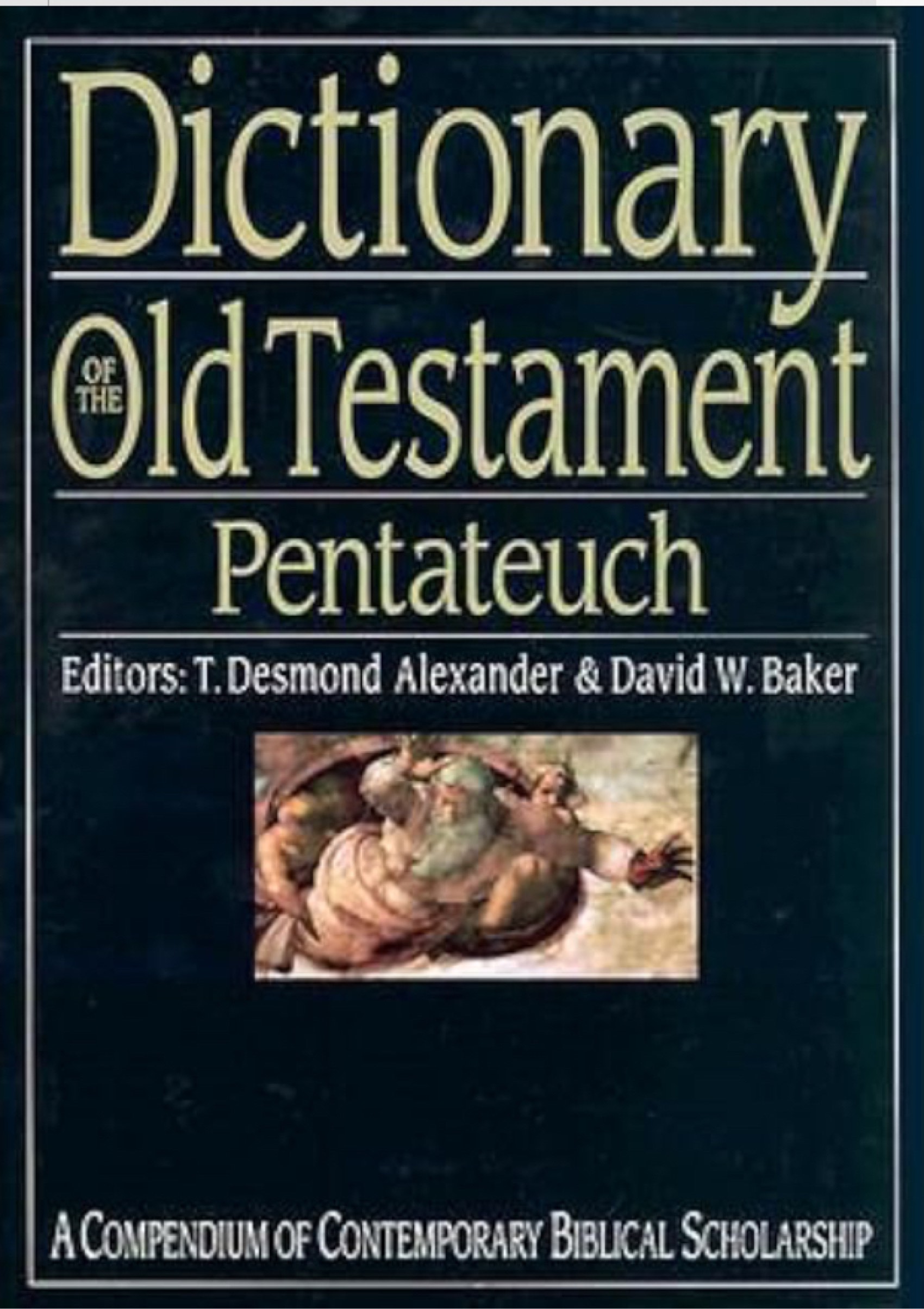DICTIONARY OF THE OLD TESTAMENT PENTATEUCH
Summary of “Dictionary of the Old Testament: Pentateuch”
The “Dictionary of the Old Testament: Pentateuch”, edited by T. Desmond Alexander and David W. Baker, is a comprehensive reference work that explores the first five books of the Bible (Genesis, Exodus, Leviticus, Numbers, and Deuteronomy). It provides historical, theological, literary, and archaeological insights into the Pentateuch, making it a valuable resource for scholars, students, and anyone studying the Old Testament.
⸻
1. Purpose and Structure of the Dictionary
• The dictionary offers a detailed examination of key themes, figures, places, and theological ideas found in the Pentateuch.
• It features scholarly discussions on biblical criticism, historical backgrounds, and theological developments.
• Each entry is written by leading biblical scholars, and cross-references and bibliographies are included for further study.
⸻
2. Key Themes Covered in the Dictionary
a) Historical and Literary Background of the Pentateuch
• Discusses the historical setting of the Pentateuch, including the Egyptian, Mesopotamian, and Canaanite influences.
• Examines the authorship and composition of the Pentateuch, engaging with documentary hypotheses and traditional perspectives.
• Reviews archaeological discoveries related to events like the Exodus and the patriarchal period.
b) Major Figures in the Pentateuch
• Provides detailed studies on key biblical figures such as Adam, Noah, Abraham, Isaac, Jacob, Joseph, Moses, and Aaron.
• Discusses the role of priests, prophets, and leaders in ancient Israel.
c) Theological and Ethical Themes
• Explores covenantal theology, including God’s promises to Abraham and Israel.
• Discusses the law, sacrifices, and priesthood, emphasizing their significance in Israelite worship.
• Examines ethical issues such as justice, holiness, sin, and redemption.
d) Rituals, Worship, and Law
• Analyzes the Tabernacle, sacrificial system, and the priesthood, particularly the role of Aaron and the Levites.
• Reviews dietary laws, purity regulations, and festivals such as Passover and Yom Kippur.
e) Social and Cultural Aspects
• Discusses family structures, social justice, slavery, and women’s roles in ancient Israel.
• Provides insight into ancient Near Eastern parallels, comparing biblical texts with other ancient traditions.
⸻
3. Importance of the Dictionary
• Bridges the gap between traditional and modern biblical scholarship, offering balanced perspectives.
• Clarifies complex theological and historical issues, making it an essential resource for in-depth Old Testament study.
• Engages with both conservative and critical interpretations, allowing readers to explore different viewpoints.
⸻
Conclusion
The “Dictionary of the Old Testament: Pentateuch” is an essential scholarly resource for understanding the foundational books of the Bible. It offers historical, theological, and literary insights that help readers interpret the Pentateuch within its ancient and religious context. Whether for academic study, sermon preparation, or personal research, this dictionary is an invaluable guide to the world of the Old Testament.
